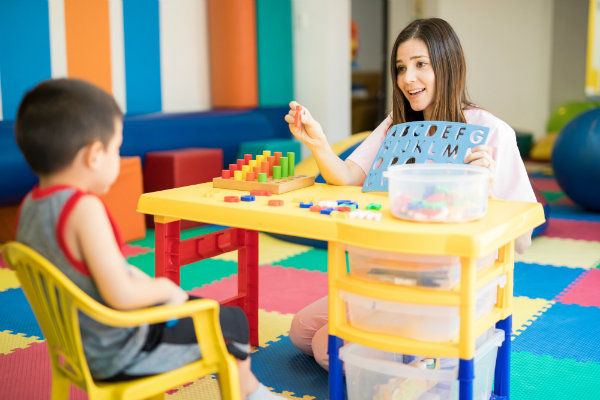Why You Should Take an Early Childhood Education Online Course for Special Needs
When you're an educator, you need to create a classroom that works with children of all different abilities and learning styles. To help make that possible, consider taking an early childhood education online course that is focused on special needs. Online training is a great way to improve your knowledge and learn new ideas for your classroom.

1. There Are a Variety of Special Needs
The phrase “special needs” can refer to a variety of different topics as it concerns children. Some children have needs related to physical disabilities such as multiple sclerosis, epilepsy, or even asthma. Others may have sensory impairments, such as being blind or deaf. Still others might have extreme behavioral, emotional, or developmental needs.
As our collective understanding of the human brain grows, so does our understanding of the scope of children with special needs. As a result, more children can be diagnosed at earlier ages and receive interventions and assistance more quickly. To take one example, consider Asperger's Syndrome. Considered to be part of the autism spectrum, Asperger's was not diagnosed until the 1980s.
To learn about special needs, you might consider taking the early childhood education online course “Special Needs in the Early Childhood Classroom”. This online training course shares information about a wide range of common special needs and some of the modifications these children may need in the classroom.
2. Inclusion Is Critical
Children with special needs often need interventions or specialized classes, toys, or learning materials. However, and perhaps even more importantly, they need to feel included. When working with children with special needs, consider ways to make sure they are included in the classroom setting in an authentic and valuable way.
Luckily, there is more than one early childhood education online course that is focused just on that element. In particular, “Understanding Inclusion in Early Childcare Settings” is an essential course that discusses this topic. This hour-long course covers the defining features of inclusion, the benefits of inclusion, and how to create an inclusive environment in your classroom.
3. Special Needs Often Shows Up as Problematic Behaviors
In some cases, special needs may present as problematic behavior in the classroom. Children who have learning disabilities, for example, may get frustrated when they do not understand an activity or task, and may act out in class as a result.
In other cases, children may have conditions such as ADD or ADHD that make it hard to sit still and concentrate. As a result, these children may also act out during times when they might be asked to sit still (large group) or concentrate on a task for an extended period (small group). Similarly, emotional issues such as bipolar disorder or oppositional defiant disorder can also involve problematic behavior.
To help navigate these issues in the classroom, you might consider taking the early childhood education online course “Creating Positive Outcomes from Problematic Behaviors”. This course not only helps you learn how to deal with problematic behaviors in general, but it also specifically addresses dealing with problematic behavior that is tied to behavior disorders.
4. Allergies Are a Type of Special Needs
Children with food allergies may not need constant accommodations like children with other special needs, but they can still be classified as having special needs by way of their diet and exposure to certain foods and classroom materials. Children with severe allergies can have very severe, and potentially fatal, outcomes if they are exposed to certain items. To ensure these children are well protected in your classroom, you might consider the course “Food Allergies: Recognizing Allergic Reactions”.
Course Bundle: Inclusion and Children with Special Needs
This 3 hour course bundle will introduce you to inclusion in early care and education. You will also learn about Autism Spectrum Disorder and strategies you can use to support children in the classroom.



